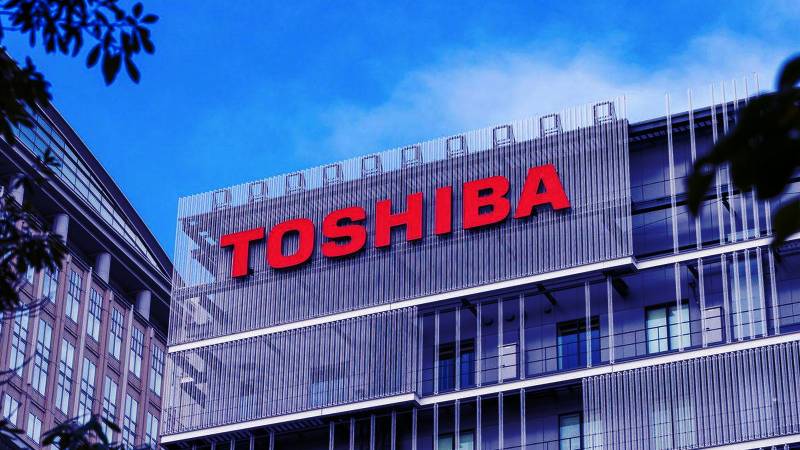
There was a period when Toshiba produced several TVs, laptops, speaker systems, and other necessary technological products.
Japan Inc., a business that served as a symbol of Japan's supremacy in the electronics industry, has been delisted, ending a 74-year association with the Tokyo Stock Exchange.
Why, therefore, did one of the most well-known industrial names in Japan experience such a dramatic decline in popularity?
It all began in 2015 when it was discovered that several divisions had engaged in accounting malpractices, many of which included upper management.
Toshiba had been inflating its earnings for seven years by $1.59 billion (£1.25 billion).
Toshiba discovered further accounting errors in 2020.
Additional accusations concerned shareholder decision-making processes and corporate governance.
As a result of Toshiba's strategic asset status, the Japanese Trade Ministry and Toshiba collaborated to suppress the interests of foreign investors, according to an inquiry conducted in 2021.
Experts at the time claimed that this affected not just Toshiba but also the Japanese stock market, giving overseas investors pause when considering purchasing Japanese companies.
Toshiba said in late 2016 that it would assume responsibility for several billion dollars associated with building a nuclear power station, which it had purchased a year earlier from the US company Westinghouse Electric.
After Westinghouse declared bankruptcy three months later, Toshiba was left with over $6 billion in obligations and the potential loss of its nuclear business.
It sold off a variety of companies, such as white goods, medical systems, and mobile phones.
Then, due to a disagreement with one of its partners, it was compelled to list its chip division, Toshiba Memory, for sale. The transaction was postponed for many months.
Toshiba will terminate its 74-year tenure in the stock market.
During a period when businesses were making significant investments in technology and innovation, Toshiba needed to obtain money by selling a valuable asset.
Toshiba avoided being compelled to delist by securing a $5.4 billion capital infusion from foreign investors at the end of 2017.
However, it also meant that activist shareholders would have more influence over the company's course.
This resulted in lengthy conflicts that stopped the manufacture of semiconductors, batteries, nuclear power plants, and defense hardware.
Following much debate on whether the corporation should be divided into smaller businesses, Toshiba formed a committee to investigate the possibility of going private.
Toshiba received eight takeover bids in June 2022.
The business announced earlier this year that it would be acquired for $14 billion by a consortium of Japanese investors headed by the government-backed Japan Investment Corp. (JIC).
Although the new owners' strategy for turning around Toshiba is unclear, the company's departing chairman has stated that a priority would be high-margin digital services.
JIP has demonstrated success in severing commercial ties with major manufacturers, such as the laptop division of Sony and the camera division of Olympus.
Following its acquisition of Sony's Vaio laptop division in 2014, it assisted the firm in setting sales records this past year.
Nonetheless, Toshiba is a far larger business, and significant risks are involved. Toshiba has some 106,000 employees, and certain of its activities are thought to be vital to national security.
